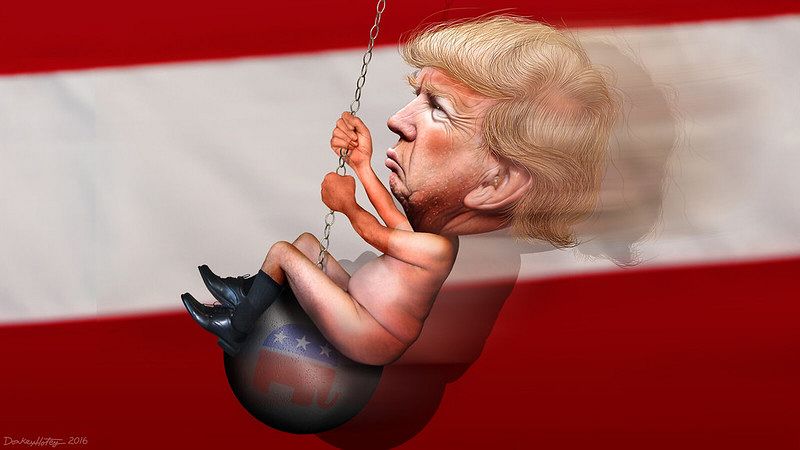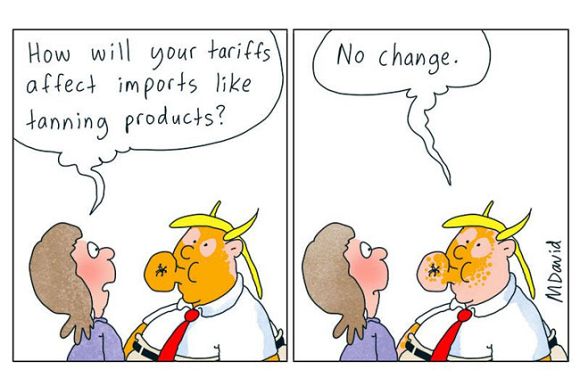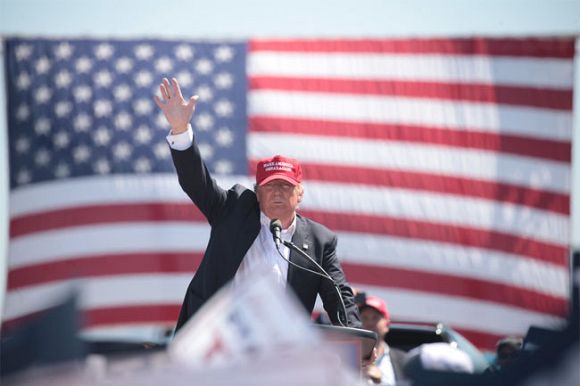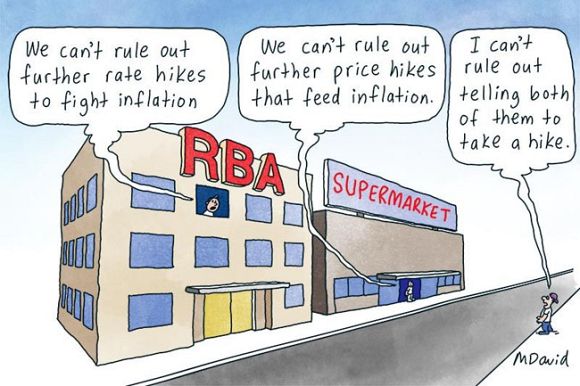Tariffs imposed by the Trump administration will change economic conditions in Australia and around the world, writes Stephen Koukoulas.
POLICYMAKERS IN AUSTRALIA are getting a clear picture of the economic policy changes that the new Trump administration will implement when Donald Trump takes power in January 2025.
The early news is troubling.
Trump has announced that he will follow through with his commitment to impose tariffs, initially against Canada, Mexico and China.
Furthermore, Trump is threatening to impose a 100 per cent tariff on the BRICS countries if they go ahead with their proposal to create a new currency to compete with the U.S. dollar in global foreign exchange markets.
The countries in the BRICS economic body are Brazil, Russia, India, China, South Africa, Iran, Saudi Arabia, the United Arab Emirates, Argentina, Egypt and Ethiopia — which suggests the tariff impost would decimate global trade if implemented.
There is even more to just the tariff issue alone.
If Trump sticks with another of his pre-election plans, there will be further across-the-board tariffs imposed on exporters to the U.S. which will obviously severely undermine global trade and global economic growth.
Prices on tariff-impacted goods will rise, but overall, the crunching of economic growth will be disinflationary.
The Australian economy suffers in a tariff war
There will be a direct and substantially negative impact on the Australian economy from the imposition of tariffs. When analysing the impact of US tariffs and the almost certain retaliatory action from its trading partners, the Reserve Bank of Australia (RBA) analysis found:
'However, weaker Chinese growth will have relatively strong negative implications for Australia given the strength of export trade links. In the extreme scenario, weaker export demand, and slower growth would be disinflationary, putting downward pressure on policy rate expectations, government bond yields and the Australian dollar.'
And, it noted that:
'...some modest downward pressure on policy rate expectations...'
Similarly, when the first Trump administration sparked a tariff dispute between the U.S. and China, Treasury analysis found:
- 'An escalation in tariffs between the United States and China will negatively affect global growth. In the short run, tariffs are likely to disrupt global supply chains, and could reduce confidence, leading to a reduction in spending, particularly investment.'
Treasury added:
- 'GDP growth in Australia will also be affected by lower global growth, particularly given the U.S. and China are two of our largest trading partners.
- A key mechanism through which lower global growth affects Australia is through lower commodity prices, which will reduce our national income.'
There is no doubt that the RBA and Treasury would still hold these views and would be advising the government accordingly.
Both economic agencies will be preparing strategies for the government to deal with the fallout from such a dislocation in global trade.
And, the sooner the government and RBA act, the lesser the fallout for investment and unemployment.
The RBA has an easy decision to make
As noted, the Trump tariffs and likely tariff retaliation mean lower economic growth with lower inflation.
At a time when GDP growth in Australia is already weak and inflation is comfortably in the target zone, an immediate interest rate cut from the RBA would be a simple and appropriate policy response to the shitstorm that is about to smash the global economy and Australia’s major export market, China.
GDP growth is struggling around 1 to 1.5 per cent. Inflation is 2.1 per cent and has been in the RBA’s 2 to 3 per cent range for three straight months and the rest of the world is cutting interest rates aggressively.
The rising spare capacity in the labour market has seen annual wage growth slow from 4.3 per cent to 3.5 per cent with more weakness likely if the economy remains in the doldrums.
The RBA Board meets next on 10 December 2024 and there are many independently-minded economists thinking that lower interest rates are necessary — even before the latest headwinds from the U.S. hit our shores.
An interest rate cut in December from the RBA – in part in response to what it knows now about U.S. trade policy – plus the updated run of domestic fundamentals, would be prudent and sensible. It would be an insurance move against the effects of higher tariffs, yet weaker global growth and elevated problems in the Australian economy.
Waiting until the RBA meeting after that – in February 2025, or even the one after that, in April – will impose additional months of monetary policy austerity when there are so many concerns impacting the local economy.
What should the government do?
The appropriate government response to the tariff imbroglio is less obvious, particularly in the near term.
To assist local businesses, the government can try to carve out exemptions from the countries imposing tariffs but this is hit-and-miss and does not deal with the broader macroeconomic effect of weaker growth and lower inflation.
It may want to consider its own retaliatory action, with a tariff impost on countries hurting Australian businesses with their tariffs.
Again, this is messy and would make Australia an active participant in the global trade war which is something against the thinking of good economic managers.
Another option is to relax budget settings further.
This means allowing the automatic stabilisers in the budget to work through the economy – lower taxes and higher government spending – to support private sector activity.
In more extreme negative economic circumstances, some additional discretionary fiscal measures could be implemented to maintain employment and to support economic activity.
Much like the fiscal responses to the global financial crisis and the pandemic.
Difficult times ahead
The problems generated by the Trump administration – even before he is sworn in – will change economic conditions in Australia.
Most of the impacts will be negative.
Policymakers will be watching and the sensible ones will be looking for policy agility to safeguard the Australian economy when the fallout hits.
Policymakers must start to act to shore up the Australian economy against the backwash – which is potentially huge – from the Trump smashing on global trade.
Stephen Koukoulas is an IA columnist and one of Australia’s leading economic visionaries, past Chief Economist of Citibank and Senior Economic Advisor to the Prime Minister.
 This work is licensed under a Creative Commons Attribution-NonCommercial-NoDerivs 3.0 Australia License
This work is licensed under a Creative Commons Attribution-NonCommercial-NoDerivs 3.0 Australia License
Support independent journalism Subscribe to IA.

Related Articles
- No coming back from Trump
- Trump's runaway trolley piling up with cuckoo captain's picks
- Trump's tariffs and their effect on the Australian economy
- U.S. Election not about economic anxiety, it’s about religious identity anxiety
- Trump taps into new media and rise in youth conservatism















